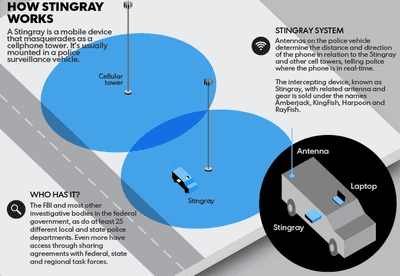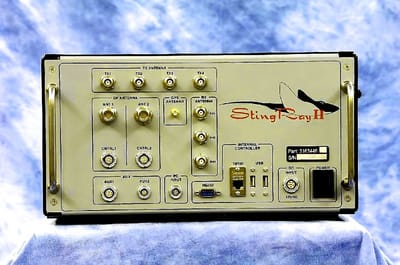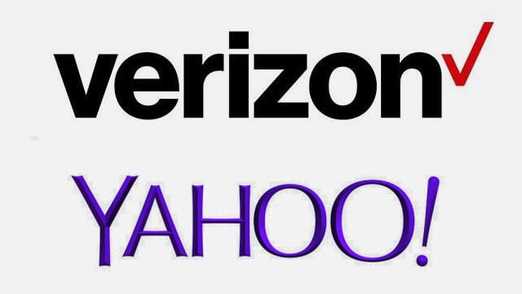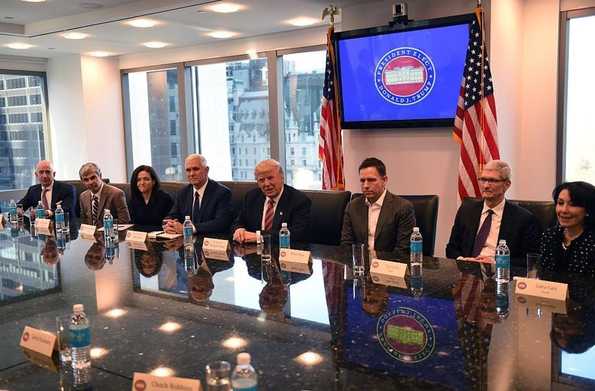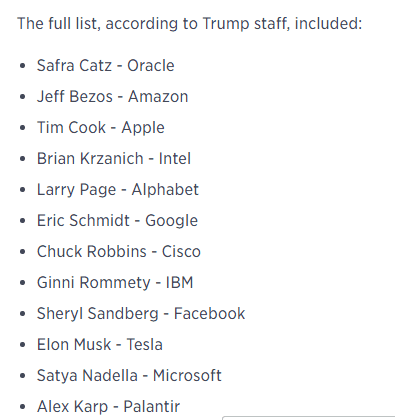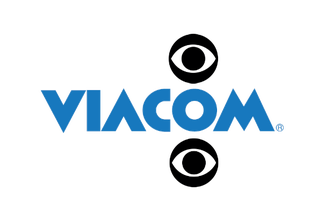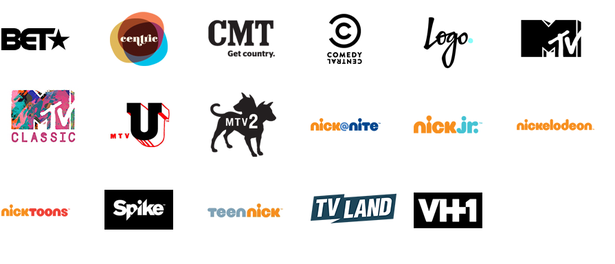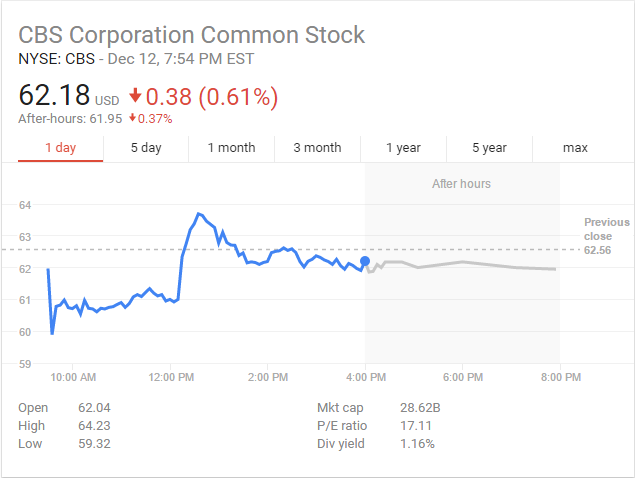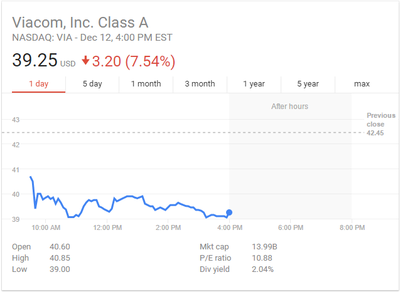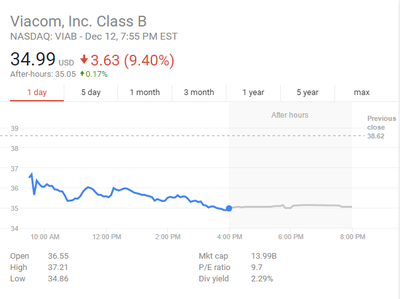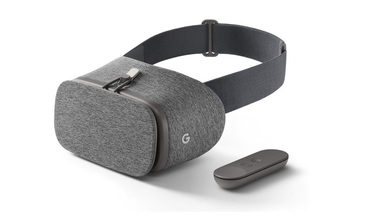|
You probably already know by now, that the feds track us someway somehow, but there is one way that is just plain uncomfortable and scary. Stingrays are their name, according to a Motherboard article, and Stingrays are cell tower simulators. Yes, they are pretty much fake cell phone towers.
This technology is used by almost all sectors of law enforcement, from FBI to local police departments, per a USA Today article from 2013. What the Stingrays do is, force all cell phones in that are to connect to it before rerouting them to real cell towers. By doing that, the Stingrays pick up all cellular data (Ex. location calls, messages, and IP address), and with that data law enforcemnet can track and build a profile. Invasive don't you think? Violation of the 4th Amendemnt, don't you think? The FBI went as far as trying to hide the existence of this technology from the public until they got called out in it. It didn't take long after that, and in February of 2015, the FBI publically admitted they and others use Stingrays. Per that same Motherboard article, here's FBI Director James Comey admitting it:
Comey goes on to defend its use, and it does make sense, but that's if you believe he's honest. Comey explains how the tech is used to help catch criminals and track terrorists, but what about all the other data the Stingrays collect? What about all the people who aren't criminals or terrorists that are unknowingly, without their consent, having their data sucked up by law enforcement? Why is it legal for the government to have a device that forces cell phones to connect to the Stingrays before connecting them to real cell towers?
Intrusive? Definitely. Violation of the 4th Amendment? It sure seems that way. Per Cornell:
Reading this you'd say, Stingrays clearly violate that, but notice nothing in there states digital devices such as telephones. However! In the dictionary the third noun definition of "effect" is personal belongings, and a cell phone is a personal belonging.
A quick Google search, returned many results of court cases against Stingray use, and even FCC complaints against Baltimore Police using the technology. The Baltimore Sun reported on this back in August, and the complaint was basically telling the FCC to "remind" police to follow the rules and hope to put an end to this. That's another thing, what about the FCC? They regulate the very medium Stingrays use. That same Baltimore Sun article cites a FCC spokesman Neil Grace, and Grace said "The commission expects state and local law enforcement to work through the appropriate and legal processes to use these devices." Meaning they can still use them, and the FCC probably already knew. That's said because these devices have to use spectrum to operate, unless they're opertaing on someone elses spectrum or government held spectrum. What about interference with other telecommunications in the area? Couldn't Stingrays do that if enough are operating in the same area? What about users trying to make a call or send a message, and these Stingrays drop it and/or delay it? Isn't that wrong too? Very unethical, and as stated above pretty unlawful. The FCC, if they don't know anything about Stingrays, probably could do more research and answer questions like those. Also at the end of the day, besides Congress, they have the authority to strike Stingrays down. What about the possibility of Stingrays being stolen or misused for hacking and identity theft? This technology could be devestating to people if fallen into the wrong hands. Congress though, it wasn't until yesterday when a US House Oversight Committee held a hearing on this, and found out some pretty eye opening information. One thing was The Department of Homeland Security and the Department of Justice own about 400 Stingrays. The second thing is DHS and DOJ have spent about $95 million on cell phone tracking technology, all per The Washington Times. Federal agencies have 400 devices, and who knows how many local agencies have them, unless they get them from the DOJ. Spooky and Orwellian stuff here.
The report in that same Washington Times article, concluded that Congress wants to work on limiting use and ensuring citizens rights aren't violated. This also seems like Congress is gearing up for some sort of debate, or legislation on this. Hopefully people like, Rep. Trey Gowdy (R-SC) and Sen. Rand Paul (R-KY), can gain traction in their houses and get legislation that really limits use of Stingrays.
It has been ruled that warrants are needed for obtaining the information from these devices, but there needs to a law or regulation limting the use of Stingrays in the first place. There are no local, state, or federal law against these devices, and there is no FCC regulation against them. Now to their defense, the feds tried hiding this tech for years, but surely some in all branches of government and FCC knew about it. With Republicans controlling the House, Senate, and White House, legislation against Stingrays shouldn't be hard to pass. Now, this technology does serve a critical purpose, but it violates peoples 4th Amendment rights. Remember, not every person is a suspect or a terrorist, but technology like this is necessary, just not by forcing every persons cell phone to unknowingly give all it's data to a fake cell tower. There needs to be FCC regulations, and there needs to be legislation passed by Congress and signed into law by President Trump. The law needs to look a little like "Only under suspicion of criminal or terroristic intent, can the use of cell tower simulators be warranted. All information can only be searched and devices can only be seized with a court issued warrant." That would put an end to every citizen, without their consent, having all their data sucked up by law enforcement. The FCC regulation would have to focus on spectrum use and where and when cell tower simulators could be used. There are no regulations or rules for their use. Maybe wireless carriers like Verizon, AT&T, and even those like Google, Apple, and Qualcomm could create technology that would counter Stingrays. They probably won't though, because that would land them in federal courts being sued by law enforcement agencies. Samsung would be a good candidate because they're a South Korean company, but why would they? They'd still get sued as well, and it'd lead into a bigger mess, but it's for the people at the end of the day. Liberty and privacy is what makes a open and free society great, but there are those who wish to do harm that make others, like law enforcement, violate our liberty and privacy. This technology could even fall into the wrong hands and harm people by hacking and theft. This technology needs to be regulated and legislation needs to be written to limit this and protect the American citizen. We should hope that it won't be long until action is taken, and a better way to track criminals and thwart attacks comes along.
0 Comments
Image
If you deal with Yahoo in any way, shape, or form you heard the news on Wednesday of 1 Billion Yahoo accounts being hacked. That is terrible news all across the board if you are some form of stake or shareholder of Yahoo. This is already in addition to the 500 million accounts hacked back in September. According to The New York Times, this hack is different than 2014 hack that compromised 500 million accounts, as this one occured in 2013. Okay, if you have anything to do with Yahoo you should be two things, worried and disappointed. Unless you go directly to Yahoo and hound them, you're unlikely to know if you're account has been one of the 1.5 billion that were hacked. There are about 1 billion active monthly users on Yahoo as it is, according to DMR, so you shouldn't think for a second your account wasn't one of the ones hacked. How can a company as big as Yahoo get hacked on such a large scale? Better yet, why didn't Yahoo disclose this earlier to stake and shareholders, as well as the FBI? Speaking of the FBI, the FBI is investigating the 2013 hack and just as why Yahoo didn't disclose to users. Check out this video from Cavuto Coast to Coast on FBN:
It's inexcusable as top international company to one, get 1.5 billion user accounts hacked, but two not to disclose it once you find out about it. There will be a lot more to come out this, that's for sure.
Bad news for consumers, bad news for investors, and terrible news for Yahoo's board of directors. Although this a somewhat good news for Verizon. Back in July of 2016, Verizon announced their $4.83B deal to acquire Yahoo. This gives Verizon significant leverage into lowering the price of this deal. Verizon isn't going to walk away from the table, Yahoo still has what Verizon wants, and Verizon will likely take over the cyber security, as they should. The price could maybe get lowered as much as $1 billion, and due to the scrutiny and troubles Yahoo is facing, it'll be hard for Yahoo to say no to that. It'll honestly be the best thing for Yahoo is to get acquired by Verizon to help extinguish the fire these hackings have started. Yahoo really has no say anymore in this deal, Verizon has all the right to get up and walk away, but they're likely going to demand a lower deal and Yahoo will probably still accept. Yesterday, AOL's Co-Founder Steve Case made just that argument. Verizon bought AOL for $4.4B for AOLs ad and content business. Verizon is doing the same here with Yahoo and Verizon is really focusing on becoming what AT&T already is, and bringing more content and ad space to mobile devices. Verizon has the infrastructure while AOL and Yahoo have the content. Here's a video of Steve Case on Fox Business yesterday making his case:
Verizon has to be a bit worried themselves acquiring Yahoo now, because what if the hacks extend beyond just user information? Who's to say the hackers didn't steal Verizon/Yahoo deal information? Then what happens, lawsuit? These hacks are a very big deal, and every single company on the planet should be taking notice, and do what they can to prevent this from happening to them.
Verizon could walk away, but it seems that AOL wasn't enough for them, and that Verizon needed Yahoo or another company similar to AOL. There are slim pickings out in the industry now to really satisfy what Verizon is shooting for, so with that being said, Verizon will demand a discount and Yahoo more than likely will accept. Yahoo use to be the biggest search engine, and dot-com company in the world back in the late 90s early 00s before Google took the spotlight. Since Google over taking Yahoo in search, Yahoo did well on getting passed search and focused on web content, but that has since declined. With all that being said, you can see why Yahoo was ready to sell itself. It's sad to see a once thriving dominate company like Yahoo decline like they have, and also have 1.5 billion accounts hacked. Yahoo went from riches to rags in almost two decades. Yahoo better hope Verizon salvages whatever legacy Yahoo has left. Here are the 5 day Yahoo and Verizon stocks, per Google:
Image
Beginning around 2:00PM EST today, Trump and some of the technology sector's biggest names met at Trump Tower. The meeting was a positive and substantive one, with Trump praising all tech leaders at the table. Trump stated, per USA Today, "This is truly an amazing group of people". Check out the video of the start of the meeting from CNBC:
Above list, per CNBC.
The meeting focused on tax reform, regulations, infrastructure, education, foreign profits, intelleuctual property rights, and government according to USA Today. Trump also told them to basically keep doing what you're doing, and to always feel free to call him and his administration. Trump clearly wants to do what ever he can for the tech sector and said, per USA Today, that his administration will be there for them. Imagine the technological possibilities, and products, that are going to come within the next four to be eight years. If these executives took the time to meet with Trump, and were willing to talk with him, Trump will do whatever he can to make all parties involved happy. These executives just need to play ball with the administration, and watch out, technology will boom big time. CNBC cited, that Trump wants to really focus on trade, saying "They're going to do fair trade deals" and "They're going to make it easier for you to trade across borders, because there are alot of restrictions and alot problems. If you have any ideas on that, that'd be great". Trade has been a huge part of Trump's campaign, and one of his key promises to fulfill as president which is trade reform. Trump honestly is the best thing that could have happened to this tech companies in terms of government. For one Trump is a billion dollar businessman himself, and Trump is going to focus on supply side economics and pro growth policies. One goal is to bring back jobs, not just manufacturing, but all jobs, any jobs back from overseas and invest their money in America. The other goal is to lower taxes and slash regulations to make it easier for companies to expand and innovate. The technology sector is large, vibrant, and diverse. Trump wants to do what's best for these companies, but in order to do that, these companies and the leaders that ascending Trump Tower this afternoon need to work with Trump. These companies have a rare opportunity, a less taxed and less regulated United States to do business in and send products out with a "Made in America" tag on them. Trump did come out with a slogan for his administration which is "Buy American. Hire American". Companies such as Ford, Carrier, and US Steel have started cozying up to that slogan, and it seems tech companies are too. On the eve of this meeting, IBM announced they plan to hire about 25,000 Americans within the next four years. IBM also plans to invest $1 billion in training and development of its US employees over the next four years, all per Fox Business.
Image
Oracle's CEO Safra Catz, said prior to the meeting "that we are with him and here to help him in any way we can. If he can reform the tax code, reduce regulation and neogtiatie better trade deals, the US technology community will be stronger and more competitive than ever." Now that's a powerful message, and would hope any of Trump's critics that were at that table today heard that message. Seriously, it'll honestly be sad if the only thing these leaders are worried about is Trump getting rid of their cheap labor and manufacturing costs. There is nothing but positivity from President Elect Trump and his current administration towards the technology sector, and those who met with him today, even with people like Amazon's CEO Jeff Bezo's who blatantly criticized Trump sitting there. The next four to eight years of President Trump will result in a thriving US technology sector. Companies will hire Americans and export their products labled with "Made In America", but of course these companies will still have some sort of international branch, but if they manufacture abroad, they'll likely face a tariff. Expect these companies that attended the meeting, even those who didn't, to understand and grow to like Trump. Expect them to follow IBM's lead, and listen to Safra Catz to hire and invest in America. Trump is serious that he and his administration will do anything to help them out, and as smart as these executives are, they see that. The US will lead once again in many industries and in many markets, but the biggest of them all will no doubt be technology. Americans are starving for jobs, both low skilled and high skilled, we have the talent we need to use it. Like stated above, these companies finally have a government that will work in their favor, low taxes and reduced regulation. America is very well on its way to becoming great again! Image The once happily married, and currently divorced companies decided to not marry again. Sumner Redstone, owner of National Amusement, which owns both Viacom and CBS, and his daughter Shari decided to walk away from the deal. The Redstone's decided to keep Viacom independent and focus more on family. Viacom runs many well known networks, many that you may watch or heard of: Image source: http://www.viacom.com/brands/pages/default.aspx CBS is of course, a broadcast station, but they also produce and distribute content. CBS also owns and operates many local television and radio stations around the United States. Much has changed within the media industry since CBS and Viacom split in 2006, and is drastically different since initally merging in 1999. Here's the kicker though, the parent company of CBS is the same as Viacom's, National Amusements. Funny how that works, huh? National Amusements also owns Showcase Cinemas all around the globe. With both companies being content producers and distributors, and having the same parent company, they're a perfect match. They're more of a match in today's media industry than they were in 1999's media industry, and even 2006's. Viacom and CBS are still media giants by themselves, and have no doubt kept up with with industry as a whole since 2006. With multiple giant media mergers in the meantime, this almost seemed business as usual and competition at work. Comcast and NBCUniversal merged, AT&T & DirecTV, and just recently (not approved) AT&T and Time Warner just to name a few. It honestly seemed like Viacom and CBS were just keeping up with the industry. This deal would have been appoved by the feds, due to the history of the two companies and the scale of the merger. Competition and market forces could easily be argued in favor of the merger due to recent megers within the industry. It was reported though, according to Fox Business, that there still may be a deal sometime in the future. Again, it almost makes sense for these two to remerge, and it'll more than likely happen in the next 5 years. The reason it'll happen in the next 5 years is because, in just 2 years talk of the deal will rehash. Executives will end up meeting, board meetings will take place, and the industry will have since flown over them. The deal will end up being accepted by both companies, roughly in 3 years, and it'll get passed along to the regulators, who will by then have seen and approved many deals like it. Lets shoot for 4 years, 2020, that Viacom and CBS will be one again. Like stated above, the industry will since have flown over them in terms of potential busness models and products, but they'll still make money from it. Money, innovation, and customer satisfaction, that's what counts when doing deals like this. I'm sure they'll launch their own streaming pay-TV service, but I'm also sure one if not both companies will launch one on their own. You should also think Virtual Reality, many content and media companies are flocking to it, check out Pulsar's write up on Google Daydream. In 2016 though, the Redstone's just weren't ready, could it be because Sumner Redstone is 95? Maybe, but only time will tell. Viacom has had many internal conflicts in recent months too, so that could be a potential reason. National Amusements could have another trick up their sleeve, who knows right now, the only thing that matters is Viacom and CBS will be seperate companies. Fortune ran a headline today, saying "Here's Why Viacom Lost Almost $1 Billion in Market Value Today". It's not a good day to be a shareholder for either company, but definitely not Viacom. Click the "F", read the article. Viacom and CBS stocks as of close today, not looking so hot: CBS- Viacom-
http://www.droid-life.com/wp-content/uploads/2016/10/Daydream-VR.jpg
Virtual Reality, living in 2016 you've had to of heard of it, and maybe even experienced it for yourself,Many companies have developed and released their own VR platforms, but Google takes the trophy right now.
Google Daydream operates like Samsung Gear VR works, you connect your phone to the front of the goggles and the expeirence begins. You control what you want to do and how you do things with a remote. Google has been testing this technology for a while now, starting with Cardboard and finally perfecting it with Daydream. Now you may be asking, "what sets this apart from Samsung, Playstation, and Oculus?", it may not be the hardware, but it's what you can do and experience. Google Daydream, according to The Verge, just added HBO, a virtual lego game, and are even planning to add Netflix and Need For Speed. Daydream already offers many video games, some free, some paid. You'll be able to binge watch House of Cards and feel like you're standing right next to Frank Underwood. Here's a quick video from Google:
It's honestly and amazing piece of technology, Playstation VR is pretty cool, but you get more bang for your buck with Daydream. Google Daydream runs for $79.99 on the Google Store. Really, this is the best VR you're going to get your hands on for the next year or two, bet on two.
Consumers shouldn't be the only ones excited about Daydream, developers and businesses should also be excited. Developers have probably more recently been playing around with Microsoft Hololens, but wait till they start cranking out apps for Daydream. Daydream may be more profitible for businesses and developers because the amount of people that have Google devices. The pricing is also key for this to be profitible for Google and the developers and businesses. More people will buy it and demand more out of it, and innovators will create more for it. Unfortunately, you need to own Moto Z or Google Pixel devices to use this, but it won't be too long until all Android devices can use Daydream, and Android owns the mobile operating system market. The things you can experience already on Daydream, what's to come, and the price of the device make it all worthwhile. It clearly beats Oculus, Playstation VR, MagicLeap, and Hololens though some of those aren't market ready yet, but Google will have the competive advantage anyhow. Virtual Reality has always been a kids video game dream, and has always been more fiction than non-fiction, well those days are over. These are only the early years of VR, the best is yet to come, think of these as still BETAs than the real deal, because much more can be done. Google Daydream is the closest we thing we have to the real deal, and frankly it probably will end up being the real deal in VR's golden age. There was an article the other day from The Daily Mail, about Microsoft saying that VR can cause halluncinations more powerful than LSD. That is some serious hullucinating if true. Microsoft conducted quizzes with a bunch of researchers on their expectations for Virtual Reality. Microsoft cites that VR will more of "multisensory experience" rather than just an "audio/visual" one, which really is true. If you think about it, if you use VR enough your body could retain those images, feelings, and even movements. Say after you stop using your VR device, your brain still thinks your in the virtual world, or if you develop a habit you start hallucinating certain things at certain times or in certain places. VR still could have long term effects, and I believe there are seizure warnings for these devices. It also could have very negative effects on your eyes with the screen being so close, and with your eyes being enclosed, but lets wait and see what the health/medical experts have to conclude about it. If your excited for VR, or want to experience, please buy Google Daydream; great price, great device, great company, and plenty of great content with much more to come. Independent developers and companies need to start creating for this device, because it will be the real deal. |
Categories
All
Archives
October 2020
|
